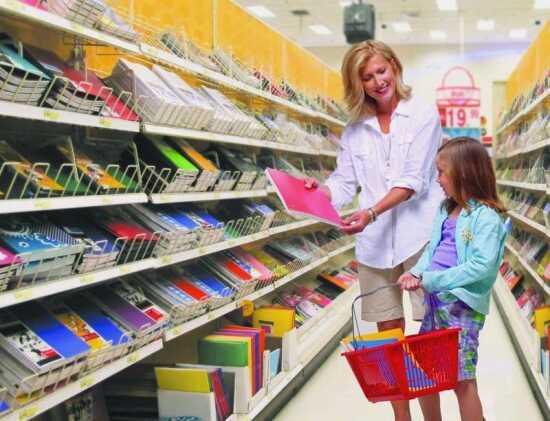Back-to-school shopping a good time to teach children about money

Many families are getting busy buying new clothes, shoes, book bags and school supplies. Then when school starts, there will be more expenses: school lunches, after-school snacks, fees for extracurricular activities -- the list goes on and on. It's obviously a very expensive time of year.
"Since these expenses are related to children, this is a great time to begin helping them learn to handle money," said Janet LaFon, family financial education specialist, University of Missouri Extension. "From a very early age, children start using money, so why not help them learn to use it wisely?"
Start by taking a look at where children get their money. Usually this is from one of three general sources: cash gifts, earnings and allowances. According to LaFon, each of these can be used to teach children money management skills.
Earnings and gifts
Cash gifts, often received on birthdays and holidays, are "surprise" money and shouldn't be included as a part of day-to-day expense money.
"Children should be given leeway to spend it as they wish. However, parents can discuss with children ideas for how the money can be used," said LaFon.
Earnings may be at home or from jobs outside of the home. Many children are paid money for extra work they do around the house. The amount received for various tasks should be agreed upon by the parents and the child.
"When children are old enough to work outside the home, they still need guidance in money management. Teens should begin developing longer-term financial plans and an adult awareness of money, work, time and their own needs," said LaFon,
Allowance money
An allowance is a child's share of family income and should be used as the child chooses on certain defined expenses. With an allowance, children can have some hands-on experience with managing money.
"They can plan their spending and learn to set some money aside for future use. Allowances can help children learn that money is limited, that income must first cover needs and that the family's financial situation affects the amount of money each member can use," said LaFon.
An allowance should be enough to cover necessary expenses, leaving some money for the child to spend as he or she chooses.
When starting an allowance, parents should teach children how to set up a budget or spending plan, keep records and set money aside for savings. LaFon says to be sure and gear the information to the age and ability of each child.
